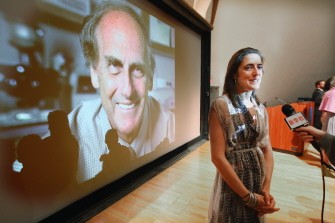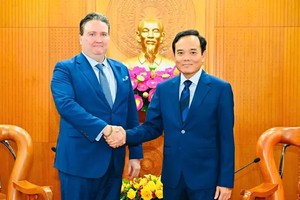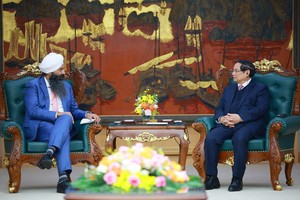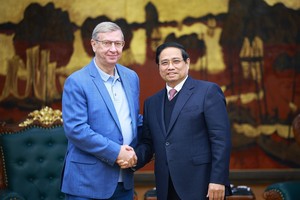STOCKHOLM, Oct 3, 2011 (AFP) - Three scientists won the Nobel Medicine Prize Monday for work on the immune system, but in a surprising twist the jury learned that one of the winners of the award had died just days before.
The new laureates were Bruce Beutler of the United States, Luxembourg-born Frenchman Jules Hoffmann, and Ralph Steinman of Canada, who it was discovered Monday had died on September 30.

"This year's Nobel laureates have revolutionised our understanding of the immune system by discovering key principles for its activation," the jury said in a statement.
The three were lauded for their work on the body's complex defence system in which signalling molecules unleash antibodies and killer cells to respond to invading microbes.
Understanding this throws open the door to new drugs and also tackling immune disorders, such as asthma, rheumatoid arthritis and Crohn's disease, in which the body mysteriously attacks itself.
"Their work has opened up new avenues for the development of prevention and therapy against infections, cancer and inflammatory diseases," the jury said.
The Nobel jury was caught off guard though when it discovered hours after announcing the prize that Steinman had died of pancreatic cancer on Friday the age of 68.
Prize regulations stipulate the award cannot be given posthumously.
However the Nobel Assembly at the Karolinska Institute that awards the prize held a meeting late Monday to discuss how to handle the situation, deciding ultimately that Steinman would remain a Nobel laureate given the "unique" situation.
"We just got the information. What we can do now is only to regret that he could not experience the joy," he head of the Nobel Assembly, Goeran Hansson told Swedish news agency TT.
Canada's prime minister Stephen Harper paid tribute to Steinman and his colleagues saying that "their research has revolutionized our understanding of the immune system and opened up new avenues for the development of prevention and therapy against infections, cancer and inflammatory diseases."
Rockefeller University in New York, where Steinman worked, was the first to announce his death, saying it was thrilled at his Nobel win, but "the news is bittersweet, as we also learned this morning from Ralph's family that he passed a few days ago after a long battle with cancer."
The Nobel jury hailed the three winners as having done more than anyone to lay bare the two-tier structure of the immune system.
Beutler, 53, and Hoffmann, 70, who just a few days ago received a joint Shaw prize in Hong Kong, were meanwhile set to share one half of the 10 million Swedish kronor ($1.48 million, 1.08 million euros) Nobel prize.
They separately identified receptor proteins that trigger the molecular cascade which is the innate immune system.
This defence is a generalised call to arms, mustering platoons of immune cells to initiate inflammation, a chemical process that seeks to establish a physical barrier against penetration beyond the microbe's entry point.
Hoffmann's win was hailed by French President Nicolas Sarkozy, who described it as "an honour" for all of France.
The laureate himself however downplayed his achievement, saying he was thinking about all the people who worked with him, and that the prize had not gone to him alone but to "the work of these three groups which have allowed us to have a better understanding of innate immunology."
Steinman won the other half of the prize for work on the second, slower line of defence, known as the adaptive response.
In 1973, he discovered a new type of cell, the dendritic cell, and demonstrated its role in unleashing T cells -- the "heavy artillery" of the immune system.
T cells are part of an immunological memory, enabling a faster and powerful mobilisation of defences the next time the same microorganism attacks.
Steinman, who also won the 2007 Lasker Prize for his work, showed that the body's immune system was able to attack harmful microorganisms while staying clear of the body's own molecules.
























